The first intensive which is taught by Professor Julia covers Motivation, Performance Management, Workplace Values and Ethics and Organizational Culture.
At the start of MCO, Professor Julia shared with us a problem solving method by Einstein. He was posed a question that if he has only 1 hour to save the world, what would he do? He replied he will spend 55mins in problem analysis and 5mins solving it.
We looked into managing contemporary organisations and a video of Google "Best place to work for" was shared with us:
We moved on in the topic and there are 5 trends in managing contemporary organisations. When the topic of employment relationship is touched on, the discussion on networking came in. And Ron remarked that in business term, it is also known as golf.
The McKinsey 75 was also given to us as references which we can use for interviewing managers.
When it comes to motivational theories, we cover content theories (e.g. Maslow, Herzberg, etc) and Process theories (e.g. Adam's equity, etc). There was some discussion in hiring consultants and paying exorbitant money to them. To large enterprises, consultants are seen as impartial (and the not so often used reason is that they can be blamed if things go wrong).
The phenomenon of cognitive dissonance was shared with us. In which there maybe conflicts between what is expected of them and what they want to do. Ethical issues maybe involved and the concept of reverse marketing was briefly shared. (e.g. Macdonalds organising a running competition and Tobacco companies discouraging smoking)
Culture plays an important role in a company. HP used to have a good corporate culture in the past. When it comes to culture, Japanese culture are usually representative of the Asian culture. But nowadays there are many other Asian countries with strong enterprises, such as India, China, Korea, Taiwan, xetc.
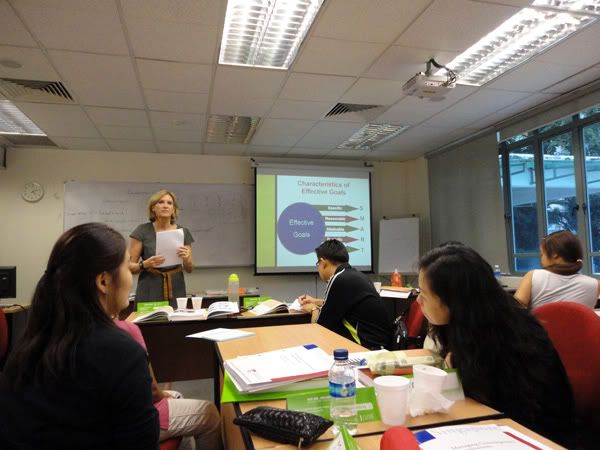
The second intensive is led by Dr Natalie which include the topics of Organizational Change, Power and Politics, Organisational Structure, Decision Making and Innovation/Creativity.
We start on change management and the impact on an organization. It is important to explain on 'why' and not the 'what' when changes are made. Normally changes are explained when the overall morale of the company is positive, so as to minimize the negativity.
The difference sources of power: expert power, referent power, legitimate power, reward power, coercive power are explained to us. Thereafter it comes to decision-making and the fallacies to avoid when making decisions.
There are organizations who change their structure regularly. Change is important and the changes that come normally involve centralizing / decentralizing their business functions after every few years. A few films were shared with us on different organizational structure (Macdonalds vs Google).
And below we have Dr Natalie sharing on the whole brain model.
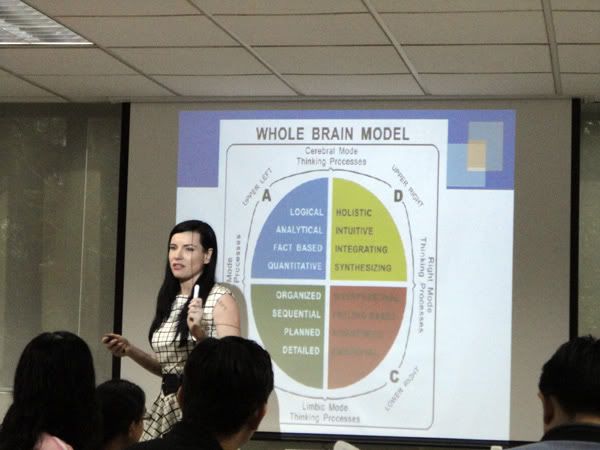
And there is a time when James came up to the front of the class and explained some concepts to us.
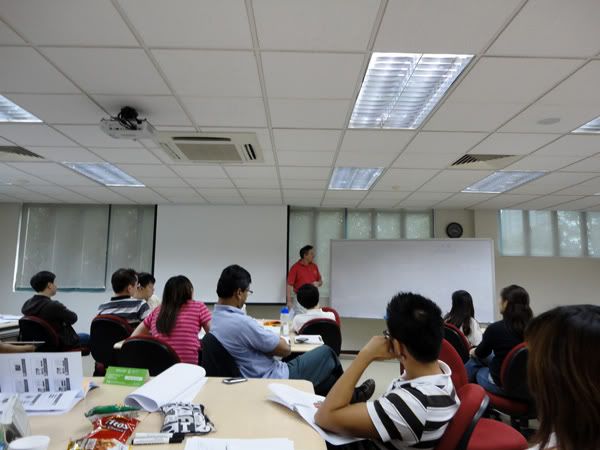
There is a group workplace project which we have to study in this subject. It involves interviewing a manager in a company and obtaining information on how he/she motivates employees. Liu Yang allows us to interview his previous company director.
As shown in the picture below, we have from left - Liu Yang, Michael and Hector. This is our first discussion held at the new student lounge.
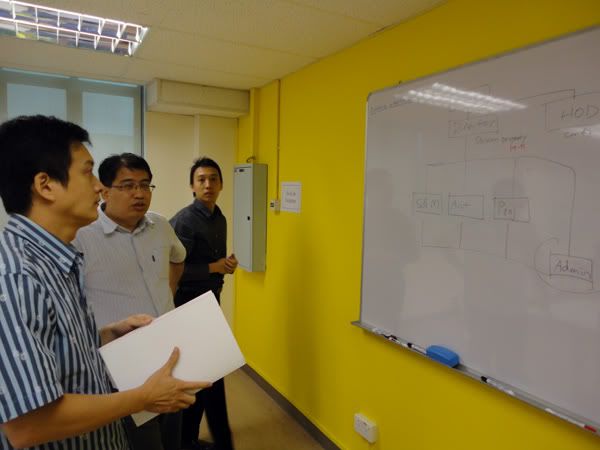
We played some get to understand ourselves game below.
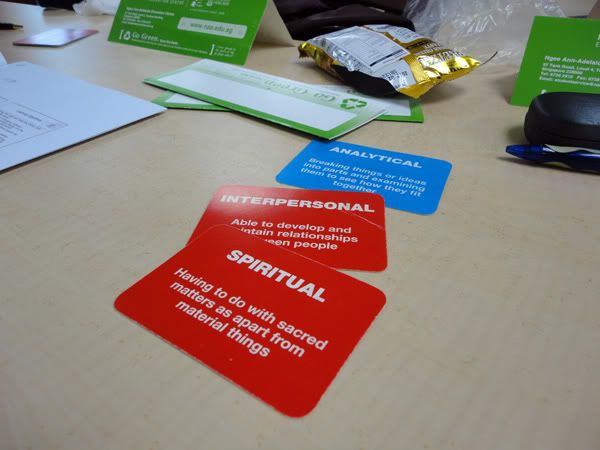
One unique feature of the exams is that we were given the case study a few days before to read through. The case study is about Disneyland and difficulties they face when they expanded to Paris (Euro Disneyland). Several topics are in discussion in this case study and primarily is about cultural differences.